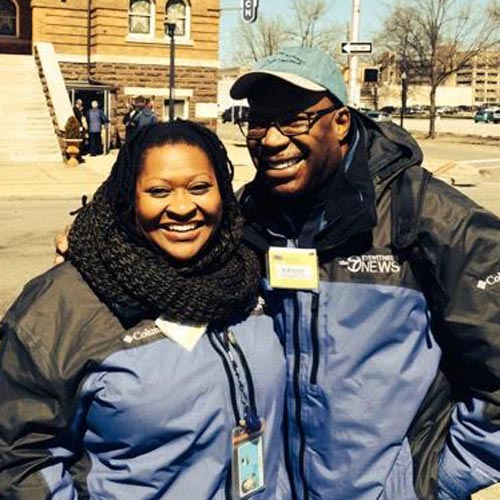For the 23 years Karen Meyer was a reporter at ABC 7 in Chicago, her news station covered the city’s disabled population, a community important to Meyer because she belonged to it. Meyer was a trailblazing deaf reporter whose on-air reports tackled issues about wheelchair accessible playgrounds and problems with public accommodations for people with disabilities.
Having a reporter on a disability beat was and still is unique, not only in TV news or Chicago, but nationwide. Often when reporters carve out specialized beats, a new organizations stays on the story as long as the reporter does.
But when Meyer retired from ABC 7 in 2014, the station decided to stay on the disability beat, giving it to special projects producer Sylvia L. Jones and Hosea Sanders, a prime-time anchor at the station.
“We had a long history of serving that community through Karen’s reporting,” said Jennifer Graves, vice president and news director for ABC 7. “Karen Meyer blazed the trail for that kind of reporting. When she retired we felt it was important to continue to tell those stories.”
Once a week on Sunday morning, the station broadcasts a special report on a disability issue.
“My core is to do community stories of people who don’t necessarily have their stories told,” said Jones, who has been at ABC 7 for 10 years. She worked five years before that at WGN in Chicago.
Unlike Meyer, who understood from personal experience what it’s like to live with a disability, Jones said she approaches the beat from a “position of ignorance.”
“I don’t pretend to be an expert,” Jones said. “I just knew there was a community that is not heard.”
Before she left the beat, Meyer passed on story ideas to her colleagues, including one about a Chicago-area dentist who specializes in serving clients with special needs. A year later, Jones, who does much of the legwork, is tapped in. She’s made sources and gets tips, as the station covers subjects like a job-placement program featured on a recent segment.
The term “disability” encompasses a wide range of impairments. One of the biggest journalistic challenges, Jones said in a recent interview from ABC 7’s offices in downtown Chicago, is telling the story of someone who has difficulty communicating.
“It’s their story,” she said. “It’s harder to get. There are communication challenges in understanding sometimes.”
Gary M. Arnold, public affairs manager for Access Living, a nonprofit disability rights and service organization in Chicago featured in a report last year about the American with Disabilities Act, said the station remains a good resource for people living with disabilities, and a place where their advocates can be heard.
“If there’s an issue or a program or an individual who we think makes sense to promote, it’s great to have Channel 7,” he said.
In another sign of the community’s reponse, one organization took to Facebook to laud the “amazing” job that ABC 7 reporting on a summer camp for special-needs youth.
Being on the beat has changed how Jones sees the world, she said, making her more attuned to the subtle ways people with disabilities face discrimination. “I definitely look at the world through a different lens,” she said.
On a recent trip to South Africa, she was in a bathroom and noticed that there was not a wheelchair accessible stall.
“Then I started to wonder where the elevator was,” she said. “It was a stark reminder that the entire world hasn’t caught up.”
Jackie Spinner is CJR’s correspondent for Illinois, Indiana, Ohio, and Wisconsin. She is an associate journalism professor at Columbia College Chicago and a former staff writer for The Washington Post. Follow her on Twitter @jackiespinner.

